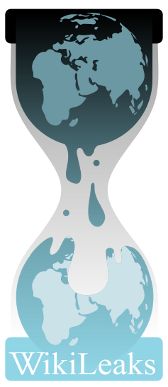WikiLeaks – The Ultimate INSIDE Job
If you need a world class example of the adage that INFORMATION IS POWER, look at the recent kerfuffle WikiLeaks has caused. Since threatening to release more than 250,000 U.S. diplomatic cables, WikeLeaks has experience a rash of cyber problems (none attributable to the U.S. Government, but it does make you wonder…):
“The site’s efforts to publish 250,000 diplomatic cables has been hampered by denial-of-service attacks, ejection from its server host and cancellation of its name by its American domain name provider. Each time WikiLeaks has worked out other arrangements to bring the site back online.” – By Charley Keyes and Laurie Ure, CNN
Who wouldn’t leak information via WikiLeaks? You are pretty much guaranteed anonymity with few repercussions. You don’t like the way something is being handled at your corporation or in your Government Department, but have a Non-Disclosure Agreement that keeps you from speaking up publicly? Send it to WikiLeaks and let them do your dirty work. Non-traceable, non-accountable, high profile information dissemination at your service. I’m not sure if it’s fair or ethical, but who cares when it’s so damned convenient and effective? Transparency in a box.
WikiLeaks is an international non-profit media organization that publishes submissions of otherwise unavailable documents from anonymous sources and unnamed leaks. It has no association to Wikipedia, which confuses a lot of people. WikiLeaks was launched in 2006 and is run by The Sunshine Press. Within a year of its launch, the site claimed a database that had grown to more than 1.2 million documents.
WikiLeaks has been responsible for the release of extremely controversial war time videos and documents. In April 2010, they posted a video showing the slaughter if Iraqi civilians; the Iraq War Logs were posted in October and most recently they are known for releasing a series of diplomatic cables. The leak of Iraq War Logs included over 400,000 controversial documents that were released with the help of major media groups.
The most recent controversy is because WikiLeaks says it has 251,288 cables sent by American diplomats over the last 40 years that it plans to release over the next few weeks and months. One of these cables seems to show an order by United States Secretary of State Hillary Clinton to diplomats to obtain credit card and frequent flier numbers of the French, British, Russian and Chinese delegations to the United Nations Security Council.
Many wonder how WikiLeaks can hide the sources of their documents and information. The site boasts that they use state-of-the-art technology that allows them to bounce the encrypted information from country to country to hide the trail and protect their sources. Countries such as Sweden and Belgium have given them legal protection.
It’s fairly apparent that the source of these documents is an inside job. Someone inside of the State Department, or other entity with access to State Department records, is leaking these documents with impunity.
This recent leak has lead to an open criminal investigation by the Department of Defense. Senator John McCain, R-Arizona, called the WikiLeaks episode “an incredible breach of national security.” I have to agree with him a bit. I believe in government transparency, but there are areas where information control trumps disclosure. Unless I read the individual documents in question, I wouldn’t know how to rule on this case – but it doesn’t matter, because they are already out there.
So far a single low-ranking U.S. soldier, Pfc. Bradley Manning, is the only person charged and held in custody in connection with the leaks.
Jeh Johnson, The Pentagon’s top lawyer, said WikiLeaks has openly solicited people on its web page to break the law and provide classified information. “I don’t view WikiLeaks as journalism,” said Johnson. Johnson said he was briefed regularly on the open criminal investigation by the Department of Justice.
John Sileo delivers keynote speeches on topics of information exposure and control.
Sorry, comments for this entry are closed at this time.










No Comments Yet
You can be the first to comment!